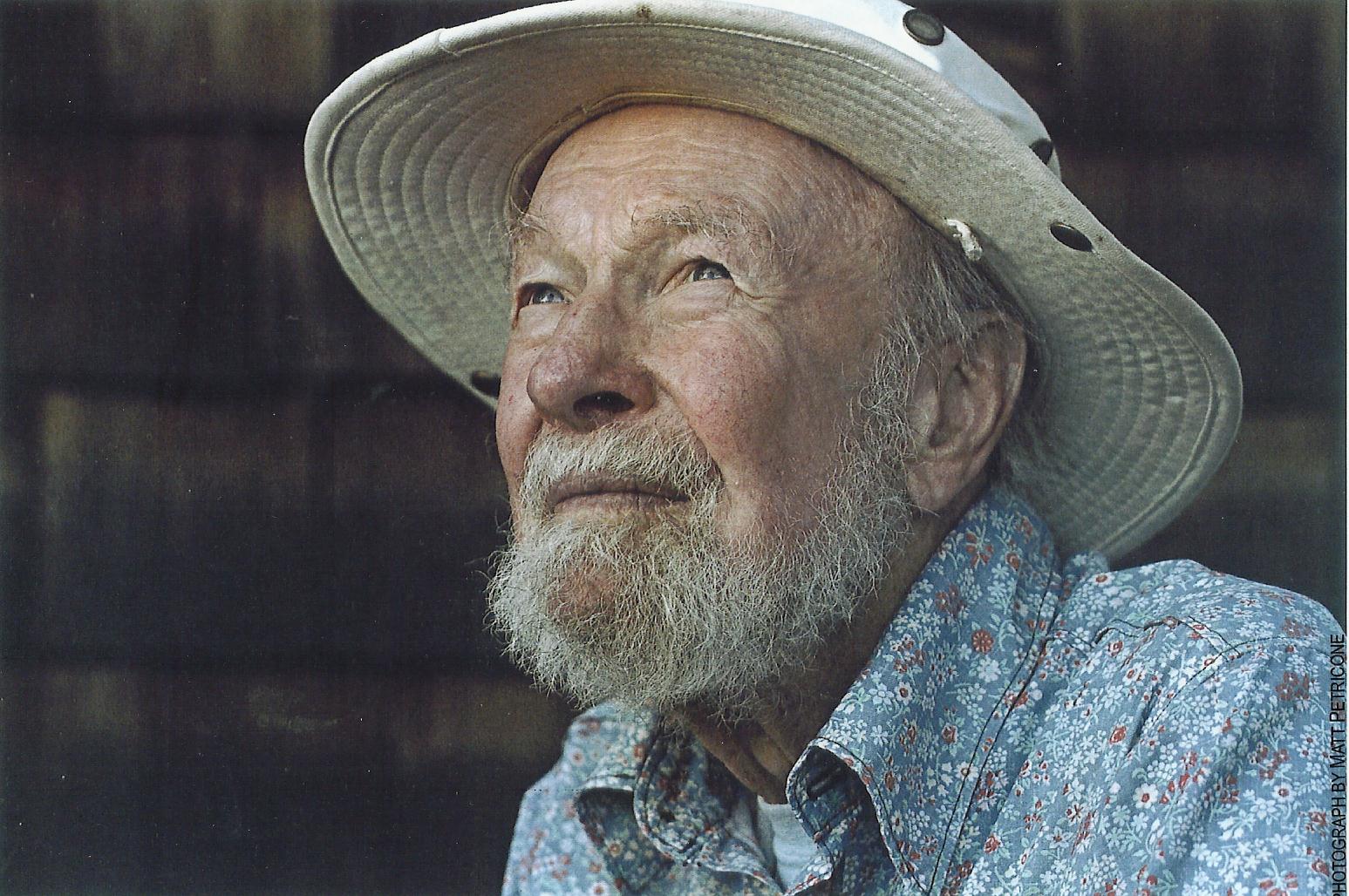Pete Seeger, who helped create the modern American folk music movement and co-wrote some of its most enduring songs such as "If I Had a Hammer," died on Monday at the age of 94.
Pete Seeger, who helped create the modern American folk music movement and co-wrote some of its most enduring songs such as "If I Had a Hammer," died on Monday at the age of 94.
Seeger, a Woody Guthrie protege whose songwriting credits included folk classics "Where Have All the Flowers Gone" and "Turn! Turn! Turn!," died of natural causes at New York-Presbyterian Hospital, his grandson Kitama Cahill Jackson told the New York Times and the Associated Press.
Seeger also was known for his liberal politics, working as an environmentalist, protesting against wars from Vietnam to Iraq and being sentenced to prison for refusing to testify to Congress about his time in the Communist Party. The case was dismissed years later.
Seeger also was known for his liberal politics, working as an environmentalist, protesting against wars from Vietnam to Iraq and being sentenced to prison for refusing to testify to Congress about his time in the Communist Party. The case was dismissed years later.
The controversy shattered Seeger's career. He continued to record and make concert appearances but was barred from network TV for 17 years.
By the early 1960s, he had returned to performing at schools and colleges and came to view the blacklist as a blessing in disguise: He was showing "a whole generation of young people you didn't need to depend on the commercial world to make a living."
When he finally returned to television in 1967 on "The Smothers Brothers Comedy Hour" on CBS, his antiwar song, "Waist Deep in the Big Muddy," was censored. But after his performance was broadcast the next year, it was credited with helping to cement public opinion against the war.
"At some point, Pete Seeger decided he'd be a walking, singing reminder of all of America's history," Bruce Springsteen said at the all-star Madison Square Garden concert marking Seeger's 90th birthday in 2009.
He performed at a concert marking Barack Obama's presidential inauguration that same year.
He performed at a concert marking Barack Obama's presidential inauguration that same year.
Gifted at connecting with audiences, Seeger called his ability to inspire regular folks to sing along his "cultural guerrilla tactic." "There's no such thing as a wrong note as long as you're singing it," he told the 15,000-strong crowd at his birthday celebration.
Seeger's life of music and political activism could be summed up in "The Hammer Song," the enduring anthem he wrote more than 60 years ago with his good friend Lee Hays to support the progressive political movement in the U.S.
Popularized by Peter, Paul and Mary in the 1960s, the song embodied the heart of Seeger: his musicality, his activism, his optimism and his lifelong belief that songs could and should be used to build a sense of community to make the world a better place.
"I'd really rather put songs on people's lips than in their ears," he said.
Seeger inspired a generation of folk singers and musicians that included the Kingston Trio and Joan Baez, who once said: "We all owe our careers to Pete Seeger."
"Pete is America's tuning fork," author and oral historian Studs Terkel once said. "His songs capture the essence and beauty of this country."
Seeger was awarded the National Medal of Arts in 1994, the same year he was honored by the Kennedy Center. In 1996, he was inducted into the Rock and Roll Hall of Fame and won a Grammy Award for best traditional folk album for "Pete." A 2008 album, "Pete Seeger at 89," also won a Grammy. In all, he recorded dozens of albums and records, and compiled a series of instructional songbooks.
His wife, Toshi, whom he married in 1943, died in 2013. His survivors include son Danny and daughters Mika and Tinya Seeger-Jackson.

No comments:
Post a Comment